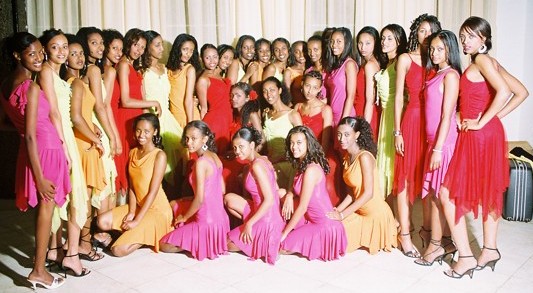When writer Miriam Arond and her husband, psychiatrist Samuel L. Pauker, M.D., surveyed hundreds of newlywed couples across the nation, they discovered that 85 percent had made love before tying the knot, yet the frequency and quality of unmarried sex had little to do with the reality of married lovemaking. Nearly half said that after marriage, they didn't have sex as often as they'd like; 20 percent of new wives reported low sexual desire. For a fourth of the wives, sex meant painful intercourse or elusive orgasms, while 1 in 10 husbands experienced premature ejaculation, and 1 in 20 had erection problems.
What ever happened to athletic, swinging-from-the-chandeliers, "did-the-earth-move-for-you-too?" prenuptial lovemaking? The deep, mystical, Tantric communing of two spirits? Hours of Hollywood sex complete with mood music, flickering candlelight, and satin sheets?
"The excitement of getting married gives couples a hit of dopamine -- a feel-good brain chemical that increases sex drive. For a few months after marriage, things may stay hot," says marriage and sex therapist Pat Love, Ed.D. "And while you still love each other and feel passionate about each other, the dopamine does settle down. You're back to real life. Your normal sex-drive set point kicks back in. Your expectations about married sex take over. It's the perfect time to do the delicious work of deepening your sexual bond."
"The challenge for couples is balancing a sense of intimacy and safety and security with a sense of unpredictability and creativity and eroticism," says Barry McCarthy, Ph.D., a psychology professor at American University in Washington, D.C. "When sexual intimacy is strong, making love plays a healthy 15 to 20 percent role in energizing your marriage. The paradox is that when sex is problematic, it plays an inordinately powerful, negative role in new marriages."
Understanding the real sexual issues that newlyweds face can help you keep sex fun and fulfilling -- now and for the rest of your lives. Experts say these hidden concerns can cool the hottest love life in the early days of marriage:
Mismatched sex drives. "When your sex drive returns to its normal level in the months after you get married, couples start to notice a frustrating desire discrepancy," Dr. Love says. "It's perfectly normal. You've just got to work it out."
Testosterone, the hormone of desire, fuels sex drive in men and women. But, Dr. Love says, relatively low levels of natural testosterone mean that two-thirds of all women don't walk around thinking about sex all the time. "For these women -- and I'm one of them -- you don't feel like having sex until you're already having it," she says. "That's perfectly normal. It just means you have to approach sex a little differently. You have to make time for touching, time for sex. You can't rely on being aroused to get things started. You have to start with relaxed touching and kissing to raise your arousal level."
Clashing sex-pectations. On the last night of a romantic two-week honeymoon, Priscilla and Greg Hunt bumped up against a radical difference in expectations and desire. "We had been making love three times a day on our honeymoon," Priscilla recalls. "It was wonderful, but we were about to go back to real life. To work and school and doing the dishes and responsibilities. I had to say, it's time to talk about moderation." Says Greg, "Sexuality was a real issue. We were both learning about it in our college courses, but experiencing it firsthand was strikingly different. My testosterone levels were extremely high. We were not evenly matched for libido. We had to work hard to communicate. Sexuality is a very sensitive issue -- you have all sorts of feelings and insecurities wrapped up in it."
Their solution? A fluid, flexible compromise: "There were times he wanted sex when we didn't have it and times I didn't want sex but we did. Thankfully, there were more times when we both wanted to make love. There's been a natural ebb and flow. It's something we still have to talk about," Priscilla says. "This is the reality for every couple: You're wired differently. If you have enough sexual experiences together that are positive for both of you, you'll be able to work out the differences."
This is an issue for many couples who've enjoyed a lusty sexual intimacy before marriage and/or during the honeymoon but who settle into different rhythms during day-to-day married life. The solution? Talk it out so that you don't feel rejected, frustrated, or bored.

















